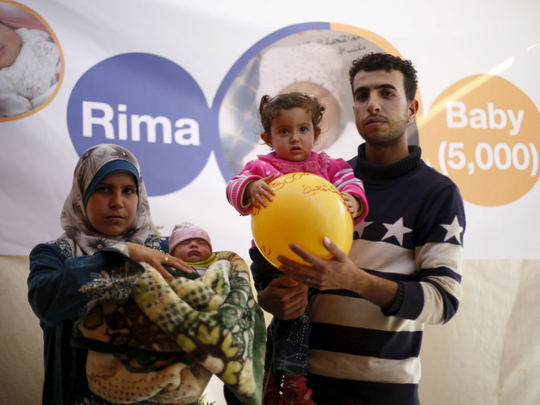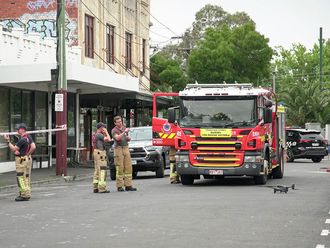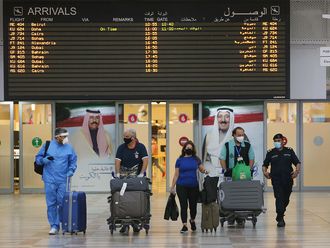
Zaatari Refugee Camp: Asleep in her mother’s arms and just a week old, Rima Mahmoud Salameh is happily unaware of the moment of history she represents. In Syria, the massacres and bombings of the civil war have made real the saying that while one death is a tragedy, a million is a statistic.
Rima is a statistic, but a more positive one, even if it also tells a story of her divided country. She is the 5,000th baby born in one refugee camp maternity clinic — that run by the United Nations in the giant Zaatari camp in Jordan. Around 4 million to 5 million people have fled Syria.
The United Nations Population Fund (UNFPA) estimates that of 637,000 registered refugees in Jordan, 16,000 are pregnant at any one time. In Zaatari, home to 81,000 people, that now works out as 10 babies on average born every day — most at the UNFPA’s clinic.
Those mothers needing to be delivered by caesarean section are whisked to a field hospital nearby run by the Moroccan military medical service. The numbers have risen dramatically since the camp opened with a few tents and the most basic of health and other provision in 2012.
The UNFPA moved in the next year, using medical staff provided through a Jordanian medical charity. The birth-rate at the camp is now higher than in Jordan as a whole. Most of the camp’s residents come from the south of Syria, from Dera’a province, which is socially conservative and well-known for wanting its daughters to marry young and have big families. Once inside the camp, one UN official said, there is not much else to do other than raise children. In war, too, doctors say it is common for families to have more babies to compensate for their losses.
Rima lost an aunt and a cousin to war before she was even born. Her mother, Khuloud Ahmad Sulaiman, is just 20 but has already had a previous child in the camp, a girl named Alaa, now 21 months old. She is about to start her fourth year living in Zaatari. “We thought we would be here for just a short while, then go back,” she said, sitting with her husband, Mohammad Salameh, 22, in the cabin that is now the family’s home.
Sulaiman cries a little when she thinks of home — where her own parents returned. She now fears for their safety, and misses her mother, who missed her two experiences of births. The one bright spot amid the suffering is the achievement of the maternity clinic itself, which has managed to deliver the 5,000 babies without losing a single mother or baby in childbirth — a creditable statistic for any hospital.










